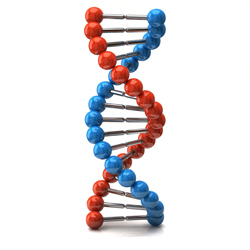Cops seek DNA information from Ancestry.com and 23andMe

Image from Shutterstock.
Police searching for suspects are looking beyond criminal DNA databases for genetic information.
In one case, police searched a publicly available database at Ancestry.com and wrongly identified New Orleans filmmaker Michael Usry as a suspect in a cold-case murder in Idaho based on a DNA sample provided by Usry’s father, Wired reports. The New Orleans Advocate had a story on the case last March.
Usry’s father had provided his DNA to a Mormon genealogy project database that was later purchased by Ancestry.com. The familial DNA search excluded Usry’s father as a suspect but the partial match left Usry as suspect. Usry was cleared after providing a DNA sample that didn’t match DNA at the crime scene.
According to Wired, the case highlights the fact that familial DNA searches, which look for DNA profiles of family members of suspects whose DNA isn’t in the searched database, are an imperfect technology that produces a high rate of false positives.
Ancestry.com has since taken the database offline. The website provided the name of Usry’s father to police in Idaho Falls, Idaho, in response to a court order.
Both Ancestry.com and 23andMe warn users in their privacy policies that they will supply genetic information to police if they are served with a court order, Fusion reports. The website 23andMe says it has received a couple requests for genetic information from state law enforcement and the FBI, but it has succeeded in blocking them. Ancestry.com refused to reveal how many requests it has received from police.
The Wired article calls on states to bar police from searching for genetic profiles in nongovernmental databases.



